Implementation of an Interactive Platform for Sustainable Development in the EU
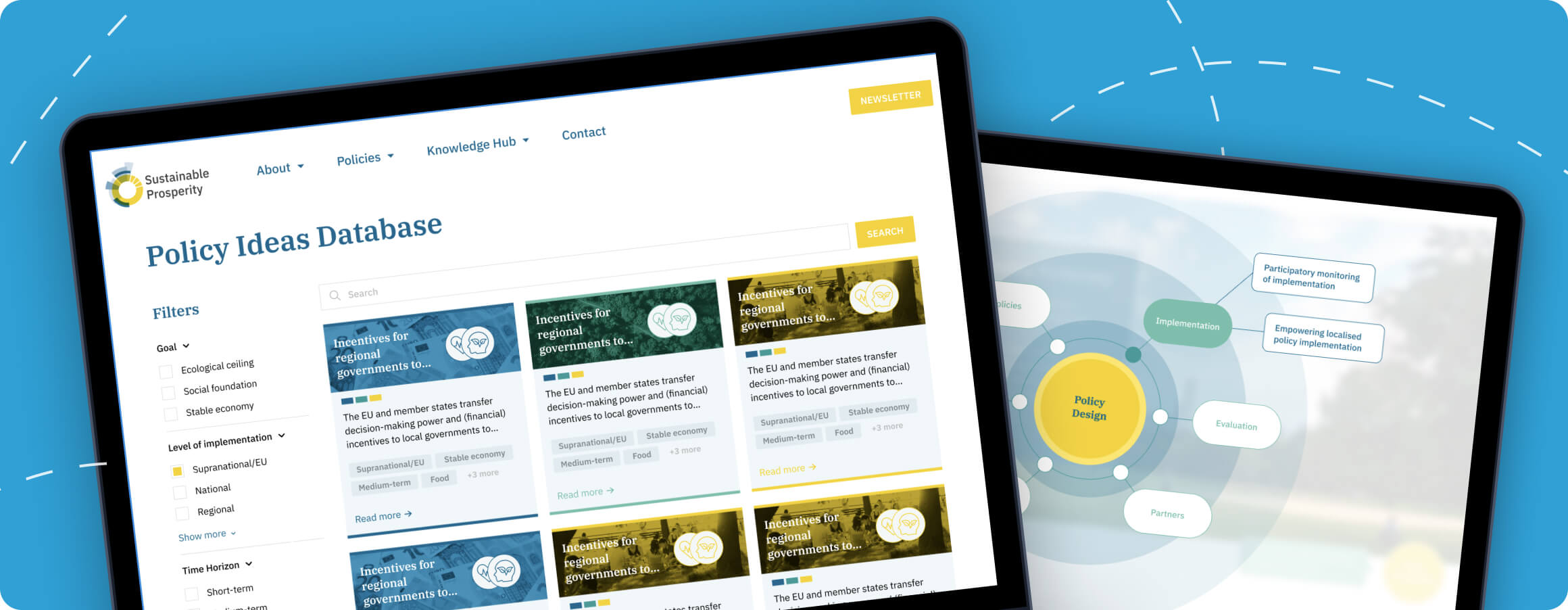
-
Client name
ZOE Institute for Future-fit Economies
-
Industry
Enterprise
-
Location
Germany
-
Duration
Aug 2024 - Mar 2025
Sustainable Prosperity is a project by the ZOE Institute for Future-fit Economies, aimed at reconceptualizing EU economic policy towards sustainable development. Its core mission is to break EU policy's dependence on endless GDP growth and center environmental/social priorities. The project equips decision-makers with compelling arguments, practical tools, and solutions for designing new policies that address contemporary crises.
Challenges
With a wealth of expertise in new economic thinking, ZOE Institute wanted to try new and innovative ways to make their policy insights easily accessible for EU decision-makers. The factors that impeded accessibility of sustainable development policies were:
Fragmented Knowledge
200+ policies on energy, transport, and taxes were scattered across PDF reports and Excel sheets.
Complex Concepts
Policymakers and educators faced challenges in understanding the economic impacts of environmental reforms due to the complexity and volume of information available.
Lack of a Collaborative Space
Experts, officials, and researchers didn't have a common tool or database through which they would be able to analyse policies.
Numerous Users in Different Locations
Dispersed expertise across the EU. Scaling impact across 27 countries required a unified knowledge foundation.
Solution
Anadea developed a high-load web platform using Python/Django, integrating two critical modules for transforming EU policy operations. The architecture employs a hybrid approach: Django handles business logic and data management, while Vue.js powers the dynamic interface for complex visualizations.
MODULE 1
Policy Database
We have implemented a comprehensive policy management system with precise filtering capabilities:
Detailed policy profiles include:
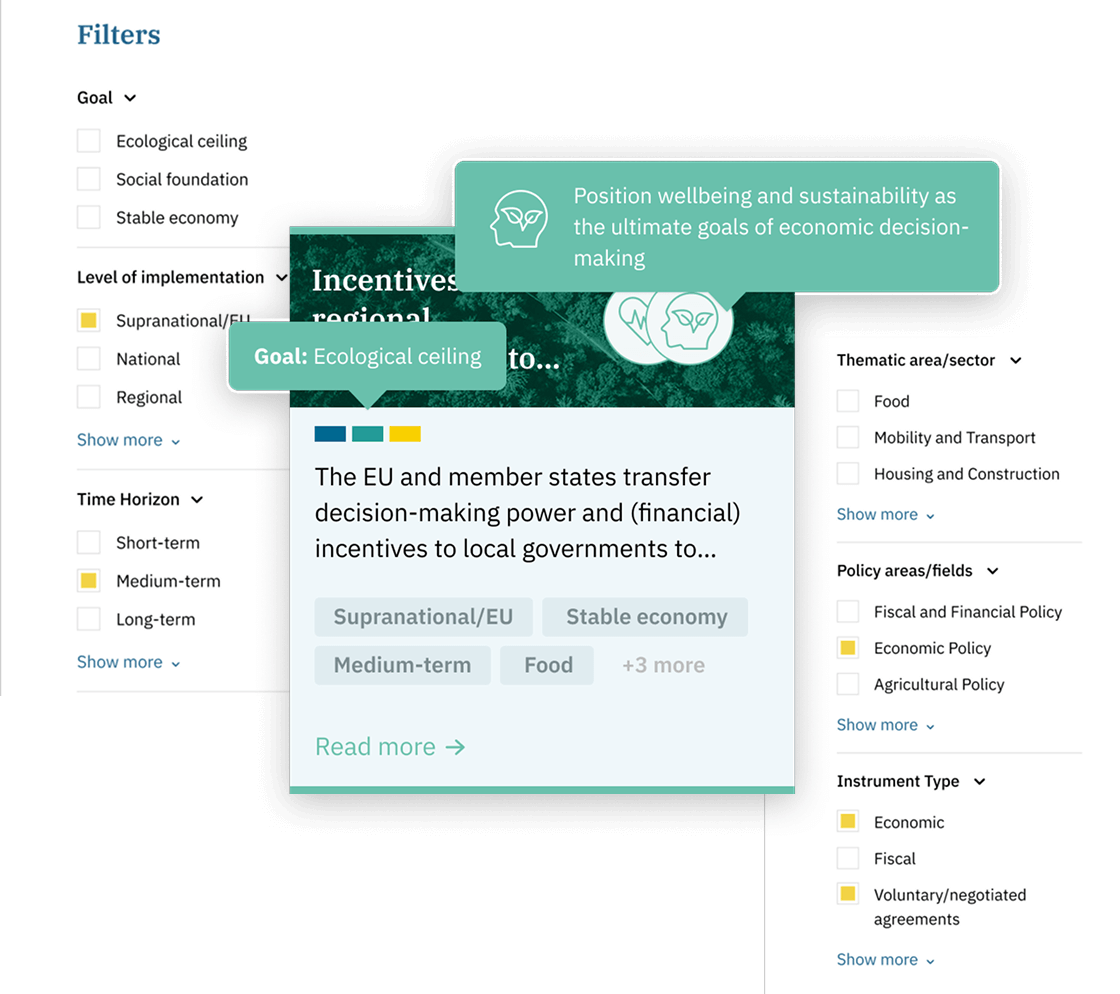
MODULE 2
Policy Finance Toolbox
We have introduced an innovative tool for analyzing investment barriers to the EU's green transition, based on the scientific "iceberg" model. This concept categorizes barriers into three interconnected levels.
Explicit level focuses on direct economic obstacles: high capital costs for green technologies, regulatory uncertainty, and lack of skilled labor. The tool filters policies that aim to reduce operational costs for environmental projects or increase costs for fossil fuels.
Semi-explicit level analyzes power dynamics and influence within the system, including lobbying networks, information asymmetry, and administrative delays. The platform visualizes policies that shift resource allocation between sectors, such as mechanisms for SME participation in decision-making.
Implicit level explores deep-seated mental models: "carbon lock-in" dependency on fossil fuel infrastructure, investor short-termism, and underestimation of climate risks. The system identifies policies that promote shifts in attitudes towards ESG risks, such as disclosure standards.
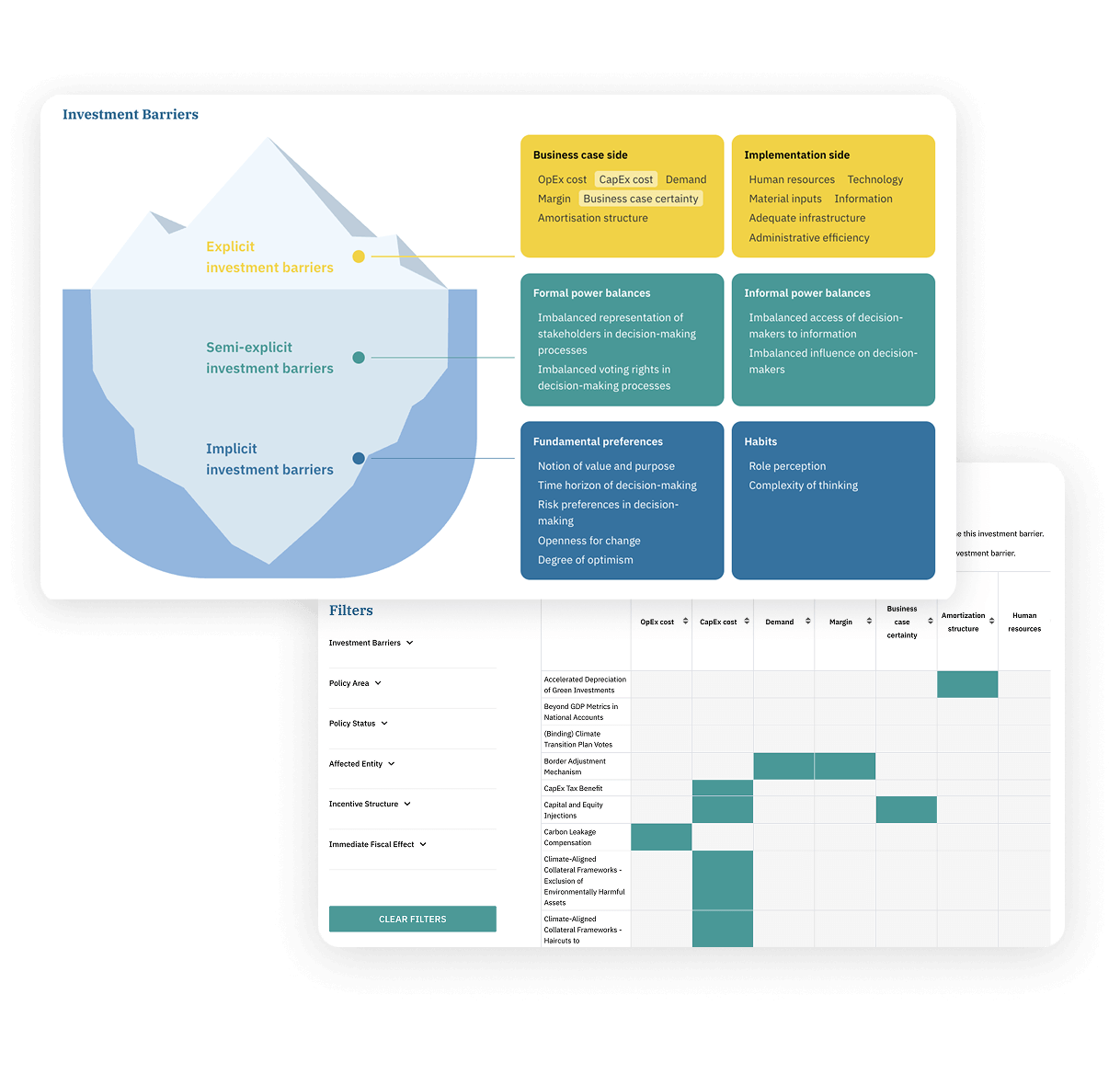
Content Management System
The platform integrates a dual-administration approach. Operational content updates (methodological materials, instructions, training content, and visual navigation blocks) are managed efficiently through the Wagtail CMS.
DevOps Solutions
The system features on-premises deployment using Dokku with automated CI/CD pipelines, including continuous deployment directly from Git repositories and optimized PostgreSQL configuration. Our hybrid rendering approach combines base HTML/CSS delivery through Django Templates with interactive components—such as dynamic filters and the iceberg visualization.
Development Process
The project was delivered through close-loop collaboration with ZOE Institute experts, combining UX research focused on policy analysts' workflows, iterative interface design that prioritized complex data visualization, and an agile methodology with bi-weekly sprints and active involvement of EU experts in testing.
Services
-
Full-stack web development
-
CMS integration
-
DevOps
-
UX/UI design
Dedicated Team
-
1
Backend developer
-
1
Frontend developer
-
1
DevOps specialist
-
1
Designer
-
1
Business analyst/Project manager
Tech Stack
Python
Django
DRF
Wagtail CMS
Vue.js
Dokku
Empowering EU Policy with Clarity at Scale
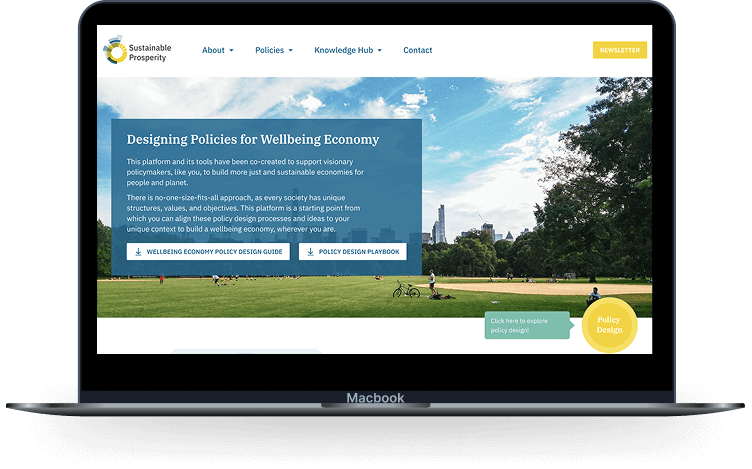
Business Value
We organized over 200 EU policies and 10,000+ data points into an easy-to-use system.
As a result, users got access to the comprehensive sustainable development knowledge base through a well-designed web interface.
Decision Support
The interactive "Iceberg" tool visually demonstrates policy impacts, helping universities and EU authorities evaluate potential effects prior to implementation. It also allows avoiding costly adjustments and subjective assessments.
EU Compliance
The system facilitates adherence to EU sustainable development requirements, enabling users to remain compliant with current regulatory standards.
Effective Knowledge Management
Clients can independently update the policy database via CSV or admin panel, significantly reducing reliance on developers.
Scalability
The platform's architecture enables seamless addition of new modules (e.g., policy comparison dashboards, automated impact reports).
Anadea successfully deployed a usable and well-designed web app. The team managed the project efficiently and communicated quickly and consistently. Moreover, the team was always available and responsive to the client's needs. Overall, the team's professionalism and attention to detail stood out.
Other Projects
With over two decades of experience, we combine deep web and mobile development expertise with cutting-edge AI, data engineering, and project management capabilities. We invite you to explore our portfolio showcasing remarkable scale and expertise.
Visdeal
Visdeal is a top fishing e-commerce platform, rebuilt by Anadea for better scalability, 10x faster performance, seamless localization, and integrations with warehouse systems.
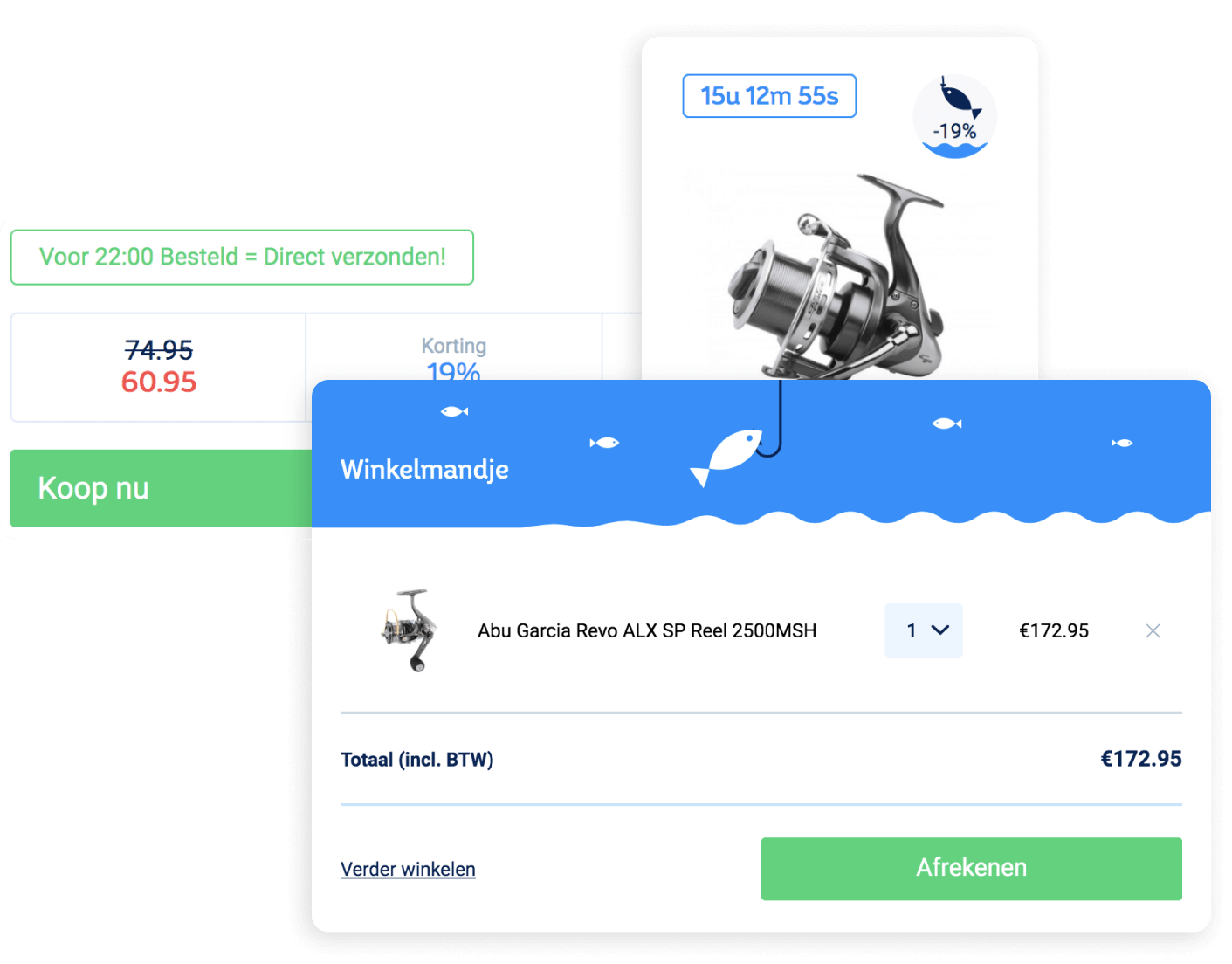
StreetEasy
We helped StreetEasy scale its engineering capacity during a period of rapid growth. Our developers contributed to microservices architecture, and the evolution of their internal tools and customer-facing features.
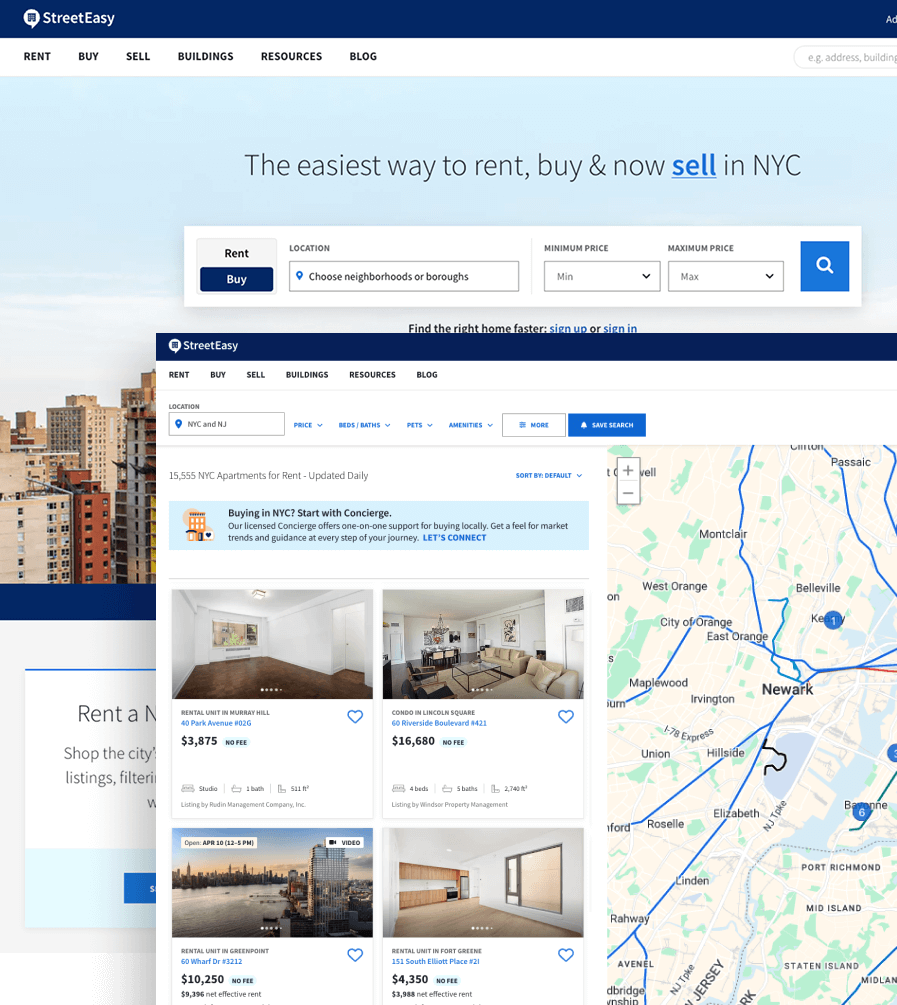
Contact us
Let's explore how our expertise can help you achieve your goals! Drop us a line, and we'll get back to you shortly.